Thought leaders share their take on education, the current administration, the economy and more
We asked our Tribal Gaming & Hospitality Magazine Advisory Board Members what the biggest issues will be facing Indian Country in 2020 and what is needed to conquer the challenges and opportunities. Here’s what they had to say:
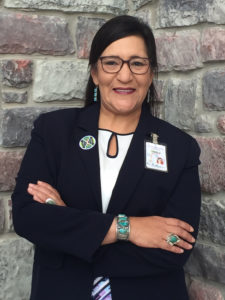 Pam Shaw, Chairwoman & Co-Founder, United Women of Tribal Gaming
Pam Shaw, Chairwoman & Co-Founder, United Women of Tribal Gaming
“Looking at how far tribal gaming has come in a relatively short period of time, I am filled with pride and gratitude as the vision of our leaders has largely come to be. As our casino enterprises have thrived, one of the biggest issues we are facing is preparing our workforce of the future. Are tribes paying attention to cultivating the next generation of casino executives that reflect the diverse teams we lead? Are we focusing on building leaders within our own tribal communities? With a multitude of big issues looming in 2020 for tribal gaming, we must remember that our workforce has changed and the path to the executive office should be clear and free of any barriers of the past. There are many, many tribes that have shown us how to effectively put the puzzle pieces together and have detailed and supported plans in place. Those responsible for building great teams and operations must stop and take an honest look at what we can do better to identify the barriers and utilize resources to remove them. Career development, mentorship, paid internships in-house as well as from our vendor partners, seeking out the tribal members who have benefited, as many of us have, from tribal educational support, specific training for women and other underrepresented team members, all great places to start so that we are prepared to look at a changing workforce differently.”
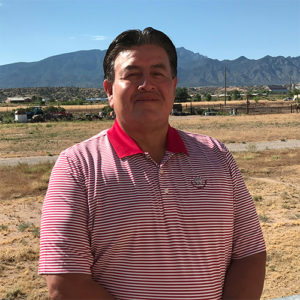 Jay Garcia, Lieutenant Governor of Santa Ana Pueblo & Chairman of the Board of Directors, Santa Ana Pueblo and Santa Ana Golf Club, Inc.
Jay Garcia, Lieutenant Governor of Santa Ana Pueblo & Chairman of the Board of Directors, Santa Ana Pueblo and Santa Ana Golf Club, Inc.
“One of our biggest issues we are facing in New Mexico since President Donald Trump was elected in 2016 is our Land into Trust status of our land base. In 2015 our Tribe purchased 60,000 acres of ancestral homeland that formerly was a large cattle ranch and obtained at the turn of the 20th century through illegal methods, as all tribes have a story and experience with throughout US history. As we move into 2020 our status for placing this ancestral homeland into Trust status via the federal government process is stuck in limbo despite our efforts to continuously keep this on the forefront of our Congressional and Senate representatives and our local Bureau of Indian Affairs agency. I feel like our Capitol Hill representatives want to help, but their hands are tied with the current administration and only so much progress, if any, can be made with President Trump’s administration. The land is filled with numerous historic and ancestral sites that are important to my Tribe and tells and confirms the story of our migration to our current village site. What is needed to conquer this challenge is a new administration that recognizes the inherent right of tribal sovereignty and self-governance. In addition, another issue facing Indian Country in 2020 is the protection of our land and resources from big oil and gas companies that wish to access protected federal land for exploration and drilling. They have the Trump administration on their side and many of the protections put into place by former presidential administrations have been undone: think of Bears Ears and Dakota Access Pipeline. What is needed is for tribes to keep up the pressure and the fight with our Congressional and Senate representatives in Washington and also our State and local governments and counties.”
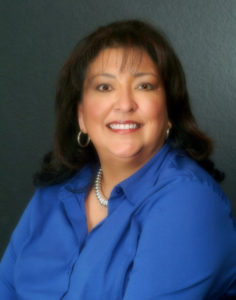 Sheila Morago, Executive Director, Oklahoma Indian Gaming Association
Sheila Morago, Executive Director, Oklahoma Indian Gaming Association
“As we start 2020, the biggest issue I see facing Indian Country is the preparation each tribe needs to undertake as gaming compacts mature. In Oklahoma, the position of our state’s governor regarding our tribes’ compact agreements has brought all of our tribes together, and as such has strengthened us. But it isn’t easy, and it requires a great deal of communication, trust and patience on the part of every tribal leader and citizen involved. I would suggest that people should learn their floor percentages, and which machines fall under which category, to gain a clear picture of the numbers. This will be very helpful in compact discussions. Many states with tribal gaming are in the same predicament; we’re just in different phases of the process.”
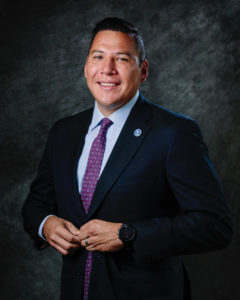 Joe Nayquonabe, Jr., CEO, Mille Lacs Corporate Ventures
Joe Nayquonabe, Jr., CEO, Mille Lacs Corporate Ventures
“The biggest issue facing Indian Country in 2020 is the economy. Most experts are now saying we are in a ‘late cycle,’ the last phase of the economy before a recession. As an industry, we need to understand the current economic cycle we are in, and at the same time make smart business decisions that are not too risk-averse – especially to the things that matter for our associates and guests. It’s easy to want to pull out the playbook from the last recession and start making moves – but that’s not the best approach. Now is the time to invest more in our teams, to be courageous with seeking approval for capital projects and expenditures, to invest in projects that will add value to our guests’ experience – like slot floor improvements, slot machine replacements and hotel and food venue enhancements. We can’t control the economy, but we can control our businesses, so focusing on the most crucial factor to your business’s health – profit – is also a great next step. Evaluate your operating models, look back at how costs were passed onto your business in the last recession by your biggest vendors, and explore ways to hedge against that in preparation for the next recession.”
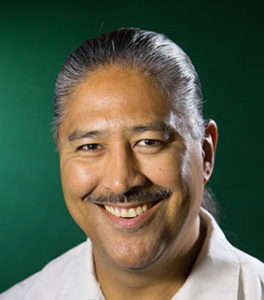 Jason Younker, Ph.D., Assistant Vice President and Advisor to the President on Sovereignty and Government-to-Government Relations at the University of Oregon
Jason Younker, Ph.D., Assistant Vice President and Advisor to the President on Sovereignty and Government-to-Government Relations at the University of Oregon
“Since the establishment of Indian gaming, only a small percentage of the 573 sovereign domestic nations have experienced substantial and related economic growth. This is a result of being removed to areas where little or no gaming clientele exists. Of all the investments we can make, higher education must be our priority. Not only must the fortunate tribes invest in their college students, but also in scholars from other tribes as well. Tribal scholars succeed at a much greater rate if they are attending college with those who have similar tribal experiences. Investment in tribal scholars from other sovereign domestic nations is an investment in our collective survival.”
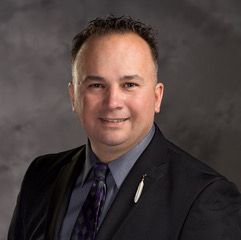 Andrew Hofstetter, Chairman, Tribal Gaming Protection Network and Tribal Government Affairs, BlueBird CPAs
Andrew Hofstetter, Chairman, Tribal Gaming Protection Network and Tribal Government Affairs, BlueBird CPAs
“As I walked around G2E this past year, I couldn’t help but notice how far the gaming industry has come as a whole. From the tradeshow floor, all the way to educational classes, it has evolved in a profound manner in just the past 10 to 20 years. With that being said, there was one lesson that was ever apparent to me and that was ‘change.’ Failing to grow and change will leave our organizations behind when it comes to evolving technology, programs, systems, new trends, regulations, training and potential threats. Regarding technology, we’ve seen the advancement of table games, slot machines, food and beverage systems and programs that streamline operations and beyond. In addition, we’ve seen training programs in online gaming, leadership, active shooter and human trafficking. But are we doing enough to keep up with technology and incorporating technological advancements into our strategic planning? Are we incorporating advanced technology into our regulations, compacts, ordinances, etc.? As the industry grows, so must we, for if we fail to grow, we not only fail ourselves, but those we represent.”

